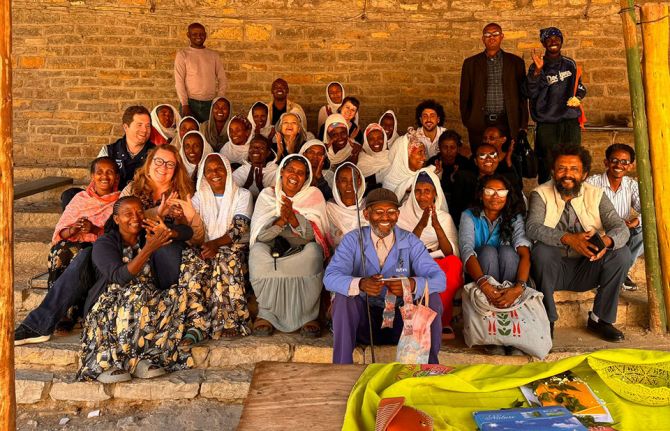

State of the World's Midwifery 2014 charts the way forward to ensure that fewer women and newborns lose their lives in preventable ways.
Feature Story
Greater investment in midwifery needed to save millions of women and newborns
03 June 2014
03 June 2014 03 June 2014The lives of millions of women and their newborn babies are being needlessly lost due to chronic lack of investment in midwife services, a new landmark report claims.
In the State of the World's Midwifery 2014: A universal pathway, a woman’s right to health, 73 countries in Africa, Asia and Latin America are shown to account for 96% of the global burden of maternal deaths, 91% of stillbirths and 93% of newborn deaths. Yet they have only 42% of the world’s midwives, nurses and doctors. The report urges these countries to invest in enhancing midwifery services, including education and training, to close this life-threatening gap.
"Midwives make enormous contributions to the health of mothers and newborns and the well-being of entire communities. Access to quality health care is a basic human right. Greater investment in midwifery is key to making this right a reality for women everywhere," said UNFPA Executive Director, Babatunde Osotimehin.
According to the report, the range of midwifery services needed to care for women and newborn babies includes maternal and reproductive health activities such as obstetric services, family planning and services to preventing mother-to-child transmission of HIV.
The State of the World's Midwifery 2014 highlights progress made since the first 2011 report and examines four critical areas of provision: availability, accessibility, acceptability and quality of midwifery services. Since 2011 a number of countries have made considerable improvements. For example, nearly a third of the 73 nations have increased recruitment and deployment of midwives. However, there still remains a critical shortage of trained personnel which is taking an unacceptable death toll among women and children, says the report. In 2013 alone an estimated 289 000 women and 2.9 million newborn babies died.
There are a series of recommendations set out under the Midwifery2030 vision expounded in the publication which call for all women of reproductive age to have universal access to midwife services. Key planning and policy measures include professional, supportive and preventative midwifery and at least four care visits where birth preparedness and emergency planning are discussed; access to emergency care when needed; maintaining a women’s health while pregnant; ensuring the availability of HIV-related services; comprehensive sex education and delaying marriage.
United Nations Secretary-General Ban Ki-moon, in the report’s foreword, fully commends Midwifery2030. “This vision is within reach of all countries…..Its implementation will help governments to deliver on women’s right to health, ensure that women and newborn infants obtain the care they need, and contribute to our shared, global ambition to end preventable maternal and newborn deaths.”
The report was released by UNFPA, the United Nations Population Fund together with the International Confederation of Midwives (ICM), the World Health Organization (WHO) and partners and was launched on 3 June during the 30th ICM Triennial Congress in Prague, Czech Republic.



